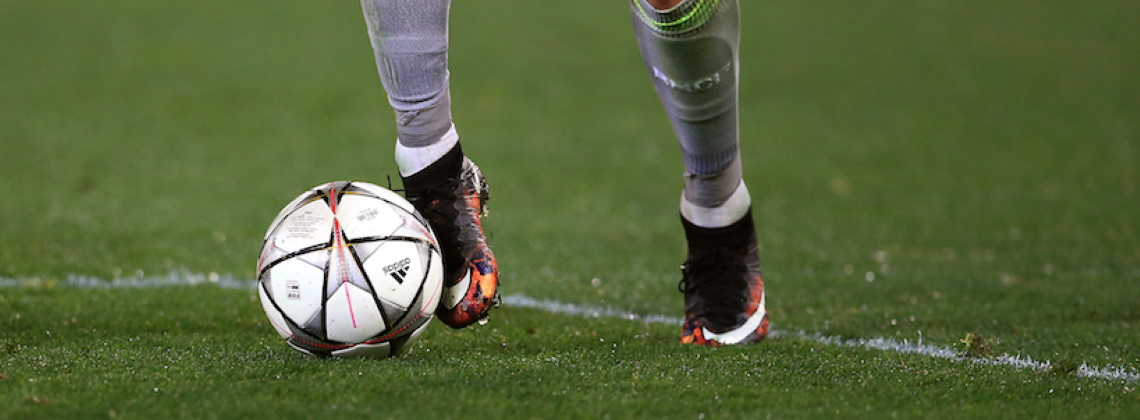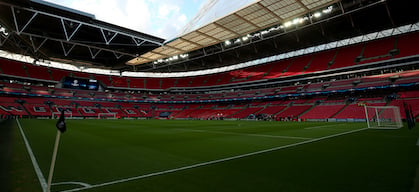
Two-legged League Cup semi-finals must be consigned to history
Greg Lea
11 January 2022
Those wondering what it might take for football's various governing bodies to come together to produce a more sensible, sustainable calendar can strike global pandemic from the list. This should have been the perfect opportunity to reassess and reset. Instead, with heads firmly planted in the sand, we are ploughing on as if nothing has happened.
Last season, the EFL agreed to scrap two-legged League Cup semi-finals. This was a necessary measure. The campaign started late and had to be completed by late May because of the European Championship. Something had to give, and reducing the last-four ties to single legs was a welcome concession.
It was a change that should have been made permanent. Yet, despite a flurry of postponements and Covid-19 outbreaks at clubs up and down the country, we are back where we started. Tottenham Hotspur and Chelsea will contest the second leg of their semi-final on Wednesday, while Liverpool and Arsenal will only do so next week after the first meeting was called off due to – you guessed it – the spread of Covid in the Liverpool camp.
Two-legged League Cup semi-finals feel like a relic from a bygone age. In the first six editions of the tournament, the final as well as the semis were held over two legs. In 1967 the showpiece event was moved to Wembley and decided in 90 minutes (plus extra time and penalties if required). Curiously, the semi-finals have not yet followed suit.

The League Cup final used to be played over two legs before it was moved to Wembley in 1967
This is despite a myriad other moves to ease fixture congestion. The Premier League was cut from 22 teams to 20 in 1995. Multiple FA Cup replays had been abolished four years earlier; in 2000 semi-final and final replays were abolished. Three years ago it was decided all FA Cup games beyond the fifth round would be decided on the day. This season, due to the pandemic, replays were removed from the third round onwards.
England is now the only one of Europe’s big five leagues to have two domestic cup competitions, after France got rid of the Coupe de la Ligue in 2020. Ralf Rangnick recently called for the tournament to be scrapped. That would be a step too far. There is still enough space in the calendar for the League Cup, which is done and dusted before the business end of the campaign. The competition has provided clubs like Swindon Town, Oxford United and Swansea City with some of the best moments in their history. Bigger sides can use it to blood young talent and build trophy-winning experience.
Yet there is a balance to be struck and the League Cup is falling short. Other competitions, most notably the FA Cup, have made more concessions in response to both the pandemic and the risk of player burnout. But the EFL, which runs the League Cup, has hitherto resisted calls for change. Its narrow commercial interests have trumped the greater good.
Jurgen Klopp was surely not alone when he said earlier this month that he would rather play a one-legged semi-final, even if that meant surrendering home advantage. Antonio Conte made similar remarks before Tottenham’s 2-0 defeat by Chelsea last week. We have got to the ridiculous stage where some managers might prefer a quarter-final exit to two extra games in January, when European rivals are revitalised after recharging their batteries during a winter break.
Some might argue that one-legged semi-finals would be less fair than two-legged affairs, which give each team the chance to play in front of their fans. But this is not really a consideration in earlier rounds, when home advantage is seen as part and parcel of the luck of the draw. Alternatively, the semis could be held at neutral venues. Last-four ties in the FA Cup now take place at Wembley, having previously been held at the likes of Villa Park and Old Trafford.
Football is in danger of killing the golden goose. The talk is always of more games and more tournaments, from the biennial World Cup to the expanded Club World Cup. Sometimes less is more. If we want to see high quality football, we have to accept that players cannot play two games a week, nine months a year.
“I don’t think people can appreciate how intense it is until you actually see it first hand,” Jordan Henderson said last month.
“Football to us is everything and we want to be able to perform at the highest level every time we set foot on the pitch. And unfortunately, in this period it is difficult to do that.
“That has been like this for a few years now and it has been difficult but then, on top of that, you chuck in Covid and it becomes even harder and even worse. I am concerned that nobody really takes player welfare seriously.”
As Liverpool prepare for a run of four games in 11 days, including a pair of League Cup semi-finals, it is hard to disagree.
Greg Lea
11 January 2022


